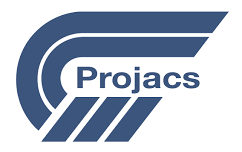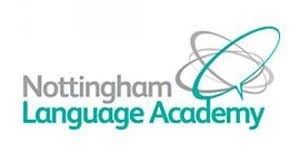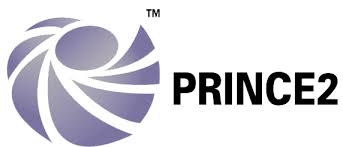
Evaluating Financial and Accounting Performance using the Balanced Scorecard
Course ID: 2507140101122EGI
Course Dates : 14/07/25 Course Duration : 5 Studying Day/s Course Location: London, UK
Language: Bilingual
Course Category: Professional and CPD Training Programs
Course Subcategories: Finance and Accounting Mastery
Course Certified By: * Projacs Academy
* Professional Training and CPD Programs
Certification Will Be Issued From :
KSA
Course Fees: £4,838.34
Vat Not Included in the price. VAT may vary depending on the country where the course or workshop is held.
Click to Pay
Date has passed please contact us Sales@e-s-hub.com
Course Information
Introduction
The ability to evaluate financial and accounting performance is a cornerstone of strategic decision-making in modern organizations. As businesses navigate increasingly complex environments, traditional financial metrics alone often fail to provide a comprehensive view of organizational health. The Balanced Scorecard (BSC), introduced by Robert Kaplan and David Norton in the early 1990s, has emerged as a transformative framework that integrates financial measures with non-financial indicators such as customer satisfaction, internal processes, and learning and growth. This course delves into the application of the BSC specifically within the context of financial and accounting performance, offering participants a robust toolkit for aligning operational activities with strategic goals.
For finance professionals, accountants, and business leaders, mastering the Balanced Scorecard is not merely an academic exercise but a practical necessity. In industries ranging from manufacturing to healthcare, organizations face mounting pressure to deliver value while managing costs effectively. A common challenge lies in bridging the gap between financial data and actionable insights—a gap this course seeks to close. By exploring real-world examples, such as how a global retail chain used the BSC to streamline inventory management and reduce overhead costs, participants will gain insight into the tangible benefits of adopting this methodology.
One of the most pressing gaps in current practice is the tendency to focus narrowly on short-term financial results at the expense of long-term sustainability. This myopic approach can lead to missed opportunities for innovation and growth. Through the lens of the Balanced Scorecard, participants will learn to balance immediate financial objectives with broader organizational priorities. For instance, a case study of a technology firm that leveraged the BSC to prioritize employee training and development highlights how investing in human capital can yield significant returns over time.
The course also addresses the growing demand for accountability and transparency in financial reporting. With regulatory frameworks such as IFRS and GAAP becoming more stringent, organizations must ensure their performance metrics are both accurate and compliant. By integrating these standards into the Balanced Scorecard framework, participants will be equipped to meet compliance requirements while driving strategic initiatives. This dual focus not only enhances credibility with stakeholders but also positions organizations for sustained success.
Mastering the content of this course offers numerous benefits, both for individuals and organizations. On a personal level, participants will enhance their analytical skills, strategic thinking, and leadership capabilities—qualities highly valued in today’s competitive job market. Organizations, in turn, stand to gain from improved financial oversight, enhanced decision-making processes, and a culture of continuous improvement. Consider the example of a multinational corporation that reduced its operational inefficiencies by 20% after implementing a BSC-driven performance evaluation system.
Ultimately, this course represents an opportunity to transform theoretical knowledge into practical expertise. By combining established frameworks like the Balanced Scorecard with cutting-edge industry trends, participants will emerge with a nuanced understanding of how to evaluate financial and accounting performance holistically. Whether you are seeking to refine your professional skill set or drive organizational change, this course provides the tools and insights necessary to achieve your goals.
Objectives
By attending this course, participants will be able to:
Analyze the core principles of the Balanced Scorecard and its relevance to financial and accounting performance.
Evaluate financial data using both traditional metrics and non-financial indicators to derive actionable insights.
Design a customized Balanced Scorecard framework tailored to the specific needs of their organization.
Implement strategies for aligning financial objectives with broader organizational goals.
Apply compliance requirements and industry standards to ensure accuracy and transparency in performance evaluations.
Assess the impact of internal processes and learning initiatives on financial outcomes.
Develop a roadmap for continuous improvement based on feedback loops and performance reviews.
Who Should Attend?
This course is ideal for:
Finance managers and controllers seeking to enhance their strategic decision-making capabilities.
Accountants and auditors looking to integrate non-financial metrics into their reporting practices.
Business analysts and consultants tasked with improving organizational performance.
Senior executives and board members responsible for aligning financial strategies with corporate objectives.
These groups will find the course valuable as it bridges the gap between financial data and strategic planning, equipping them with the tools to drive meaningful change. While prior knowledge of basic accounting principles is recommended, the course is designed to accommodate intermediate learners who wish to deepen their expertise in performance evaluation.
Training Method
• Pre-assessment
• Live group instruction
• Use of real-world examples, case studies and exercises
• Interactive participation and discussion
• Power point presentation, LCD and flip chart
• Group activities and tests
• Each participant receives a 7” Tablet containing a copy of the presentation, slides and handouts
• Post-assessment
Program Support
This program is supported by:
* Interactive discussions
* Role-play
* Case studies and highlight the techniques available to the participants.
Daily Agenda
The course agenda will be as follows:
• Technical Session 08.30-10.00 am
• Coffee Break 10.00-10.15 am
• Technical Session 10.15-12.15 noon
• Coffee Break 12.15-12.45 pm
• Technical Session 12.45-02.30 pm
• Course Ends 02.30 pm
Course Outlines
Foundations of the Balanced Scorecard
Introduction to the Balanced Scorecard framework and its evolution.
Understanding the four perspectives: financial, customer, internal processes, and learning & growth.
Linking organizational strategy to measurable objectives.
Case study analysis: Successful implementation of the BSC in a service-based industry.
Day 2:
Financial Metrics and Non-Financial Indicators
Review of traditional financial metrics and their limitations.
Identifying key non-financial indicators relevant to financial performance.
Techniques for integrating financial and non-financial data.
Workshop: Building a preliminary Balanced Scorecard.
Day 3:
Compliance and Reporting Standards
Overview of IFRS, GAAP, and other regulatory frameworks.
Ensuring compliance in performance measurement and reporting.
Addressing ethical considerations in financial evaluations.
Group activity: Auditing a sample Balanced Scorecard for compliance.
Day 4:
Strategic Alignment and Operational Efficiency
Aligning financial objectives with organizational mission and vision.
Mapping internal processes to financial outcomes.
Leveraging technology for data collection and analysis.
Real-world example: How automation improved scorecard implementation in a manufacturing firm.
Day 5:
Continuous Improvement and Future Trends
Establishing feedback mechanisms for ongoing evaluation.
Exploring emerging trends in performance measurement and analytics.
Developing a roadmap for organizational adoption of the BSC.
Final project: Presenting a customized Balanced Scorecard framework.



















































